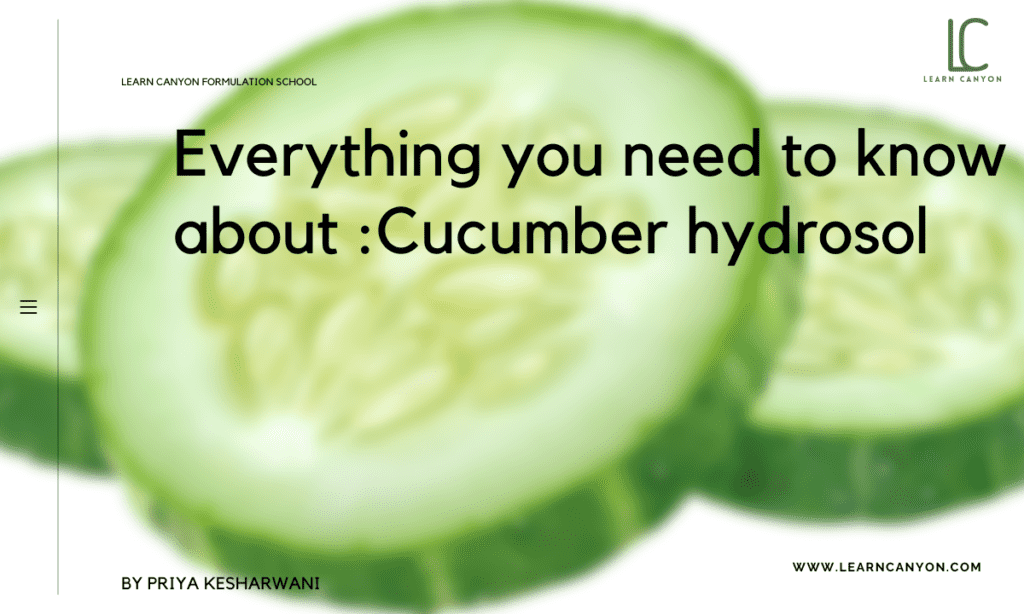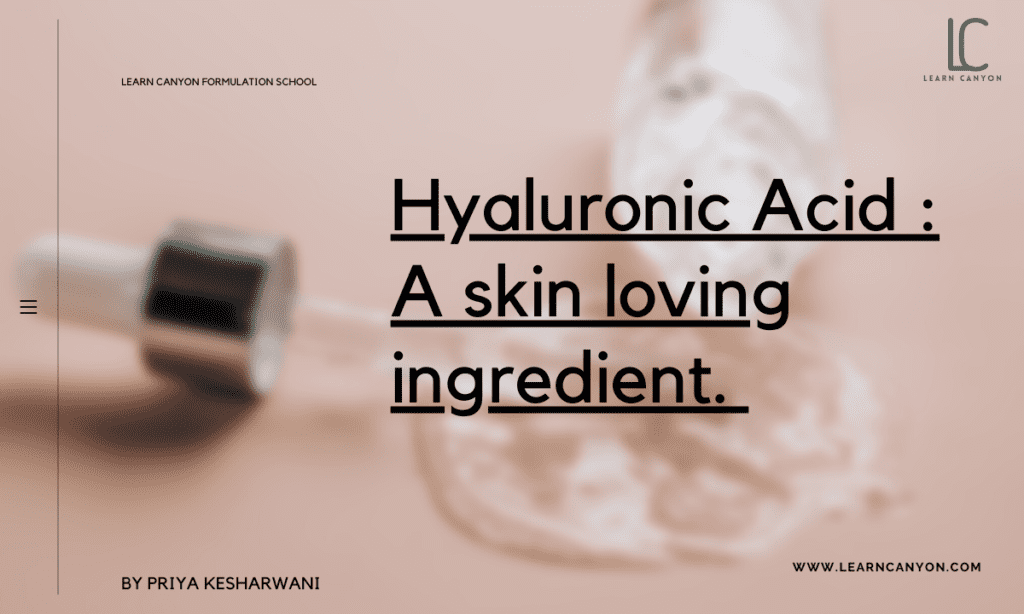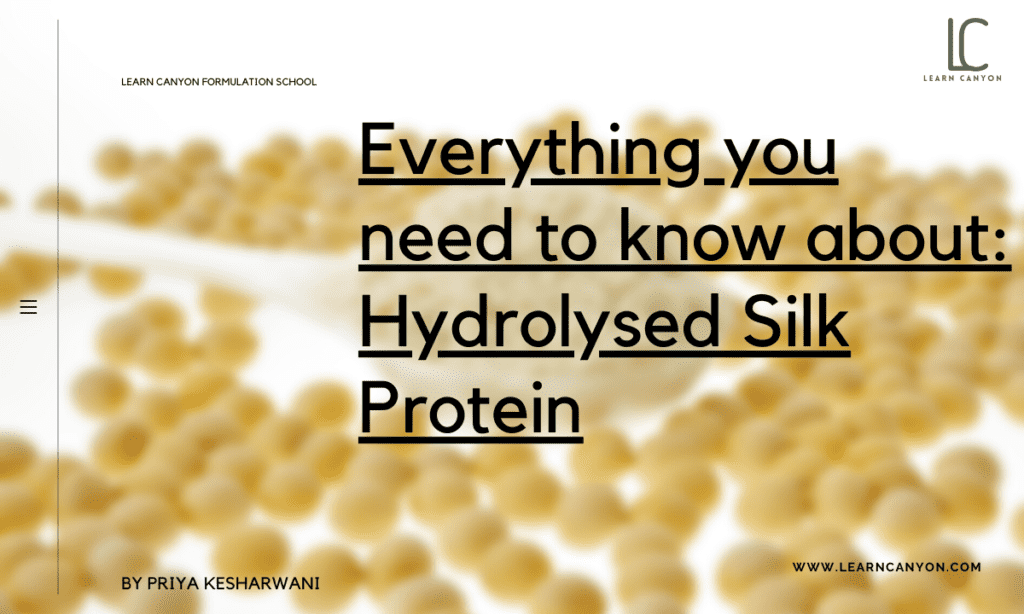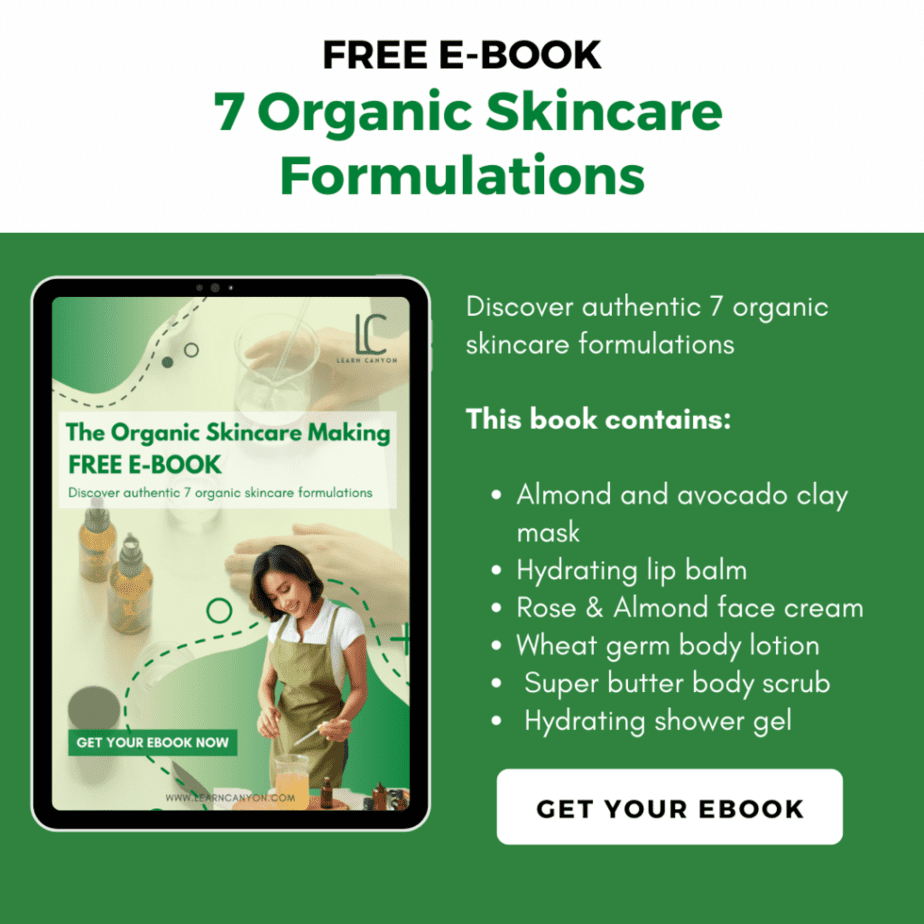
Hyaluronic Acid : A skin loving ingredient

Hyaluronic Acid
Hyaluronic acid is a skin-care ingredient that helps you achieve hydrated skin quickly. It’s in practically every form of skin-care product you can think of, including serums, cleansers, moisturisers, and more.
Hyaluronic acid is popular for a reason: it not only moisturises the face nicely, but it also decreases the appearance of fine lines and wrinkles since plump, hydrated skin is less evident.
What is Hyaluronic Acid?
Hyaluronic acid (HA) is a hydrating and plumping molecule found in our skin. The HA in our bodies includes 1,000 times its weight in water, according to dermatologist Dr. Lily Talakoub, to retain all that moisture in our skin and joints from escaping into the air.
Hyaluronic acid is also available as a supplement, however we recommend consulting with a physician first. It’s most typically found in topical treatments like serums and gel lotions, but it’s also found in injectable fillers.
| What is it? | Hyaluronic Acid is an incredible humectant and moisturiser. |
|---|---|
| INCI | Hyaluronic Acid |
| Appearance | Fine white powder |
| Texture | It's quite slippy once it's been mixed into a solution with water, leaving the skin smooth and nourished with no sticky residue. |
| Recommended Usage | 1-10% |
| Solubility | Water soluble |
| Melting point | NA |
| Boiling point | 1274.4oC |
| pH | 6–7.5 |
| Aroma | Nothing noticeable |
| Why do we include it in formulations? | Hyaluronic Acid is an excellent humectant and moisturiser. |
| How to work with it? | To make a solution, dissolve one percent in water with enough preservative to make a solution, then add it to your formulation's heated water phase or cold-process it. Because hyaluronic acid is effective in modest amounts, it can be used to treat a variety of ailments. |
| Applications | Hyaluronic acid creams and serums increase the moisture content of the skin, offering maximal nutrition, hydration, sun protection, softening, and even colouring the skin to help combat the indications of ageing and give it a youthful appearance. |
| Absorption rate | Fast |
| Strength | It is an unbeatable humectant and moisturiser. |
| Weaknesses | It is pretty expensive. |
| Substitution | Vegeluron plant based. |
| How to store it? | Stored in a cool, dark, and dry place. |
| Shelf life | Hyaluronic Acid powder should last two years. |
Fun Fact
| Type of ingredient | Hydrator |
|---|---|
| Main benefits | Skin is moisturised, wrinkles are reduced, cell hydration is replenished, and wound healing is accelerated. |
| Who should use it | Hyaluronic acid is generally safe for all skin types, although it is especially beneficial for people who have dry skin. |
| How often can you use it? | As part of your daily skincare routine, hyaluronic acid can be applied topically twice a day, in the morning and at night. |
| Works well with | Vitamin C, vitamin B5, and glycolic acid. |
| Doesn't work with | Other substances have no effect on hyaluronic acid. |
| How to use | Included in the water phase of your formulations |
Mechanisms of actions
Let’s look at how hyaluronic acid works on the skin now that we know what it is. Hyaluronic acid improves skin hydration, making it appear younger, fuller, and more bouncy. Collagen in the dermis gives the skin its structure. Due to its extremely anionic characteristics, hyaluronic acid can draw water and provide structural support. The skin’s synthesis of hyaluronic acid and collagen decreases as it ages. As the skin’s viscoelastic properties deteriorate, overlying wrinkles develop.
Benefits of Hyaluronic acid
The following are six clinically validated advantages of hyaluronic acid supplementation.
- Skin hydration maintains your skin supple and healthy-looking.
- Anti-wrinkle characteristics – due to its ability to retain significant amounts of water, skin stays moisturised and helps to prevent wrinkles from forming, as well as filling in existing wrinkles to make them less noticeable.
- Hyaluronic Acid has been demonstrated to reduce the size of surface wounds on the skin, as well as relieve pain in these regions, when applied to them.
- Antioxidant – aids in maintaining the appearance of youthful skin.
- Unlike certain skincare products, hyaluronic acid dissolves fast into the skin, resulting in reduced product loss.
- Hyaluronic acid is generally non-irritating, making it suitable for many skin types.
Side effects of Hyaluronic acid
Hyaluronic acid is generally safe for all skin types when applied topically and does not produce any side effects.
How to use it in formulations?
Mix the hyaluronic acid powder and water together in a small bowl. Add the water and stir until it’s completely dissolved. If there are still fragments, purée or process the mixture in a small blender or food processor with cold water.
Work well with other Ingredients
Although not all potent skincare compounds may be combined, hyaluronic acid and vitamin C are two that combine to make them even more potent. When combined in anti-aging products, these substances can provide both rapid and long-term effects.




